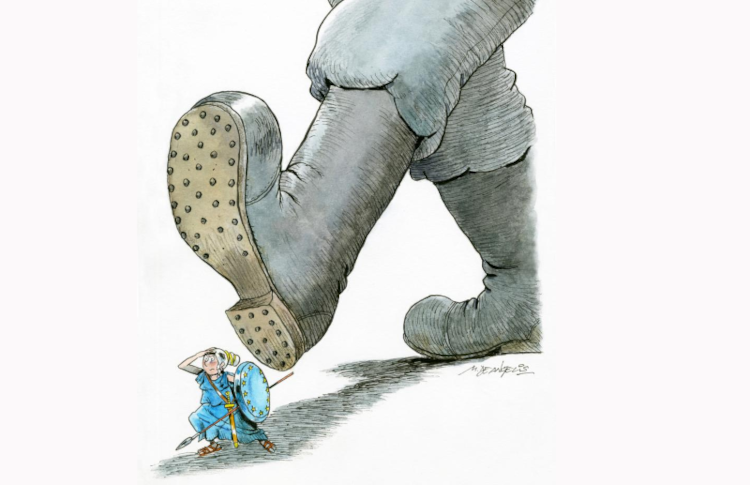Alain Caillé is Professor Emeritus at the University of Paris Ouest-Nanterre. He is the founder of the MAUSS review and a coordinator of the International Convivialist Association. He recently published "Extrême droite et autoritarisme partout, pourquoi" (Le Bord de l'Eau, 2023).
Voxeurop: In four countries, which together account for a third of Europe's population, we are seeing a surge in far-right extremism. Is intolerance, xenophobia and nationalism on the rise in Europe?
Alain Caillé: The fact that intolerance and xenophobic and nationalist ideas are on the rise in Europe might seem somewhat obvious, judging by the rise of the far right, which thrives precisely on the scapegoating of foreigners, and more particularly immigrants and Islam. But we need to take a closer look.
In fact, opinion polls show an ever-increasing acceptance of foreigners, for example in France, where the far right's victory in the European elections was particularly spectacular. So there are many other factors involved. In any case, there is undoubtedly a growing reluctance to accept immigration.
How did we get here?
There are many complex causes. Let's look at three of them, which are largely interdependent. The first is systemic opposition to the governments in power, whichever they may be. Since none of them can offer a credible vision of a happy future, people vote against them rather than for them. The far-right vote reflects a strong rejection of government parties. Yet when the far-right takes power or comes close to doing so, people start to vote against it (when this is still possible). We saw this in Poland a short while ago or during the last European elections in Sweden or Hungary.
But above and beyond these cyclical fluctuations, we need to take note of the fact that the rise of the far right is now a global phenomenon. Its rise in Europe is merely the effect, still somewhat muted, of a global groundswell that has yet to be fully explained.
Do you like our work?
Help multilingual European journalism to thrive, without ads or paywalls. Your one-off or regular support will keep our newsroom independent. Thank you!
















